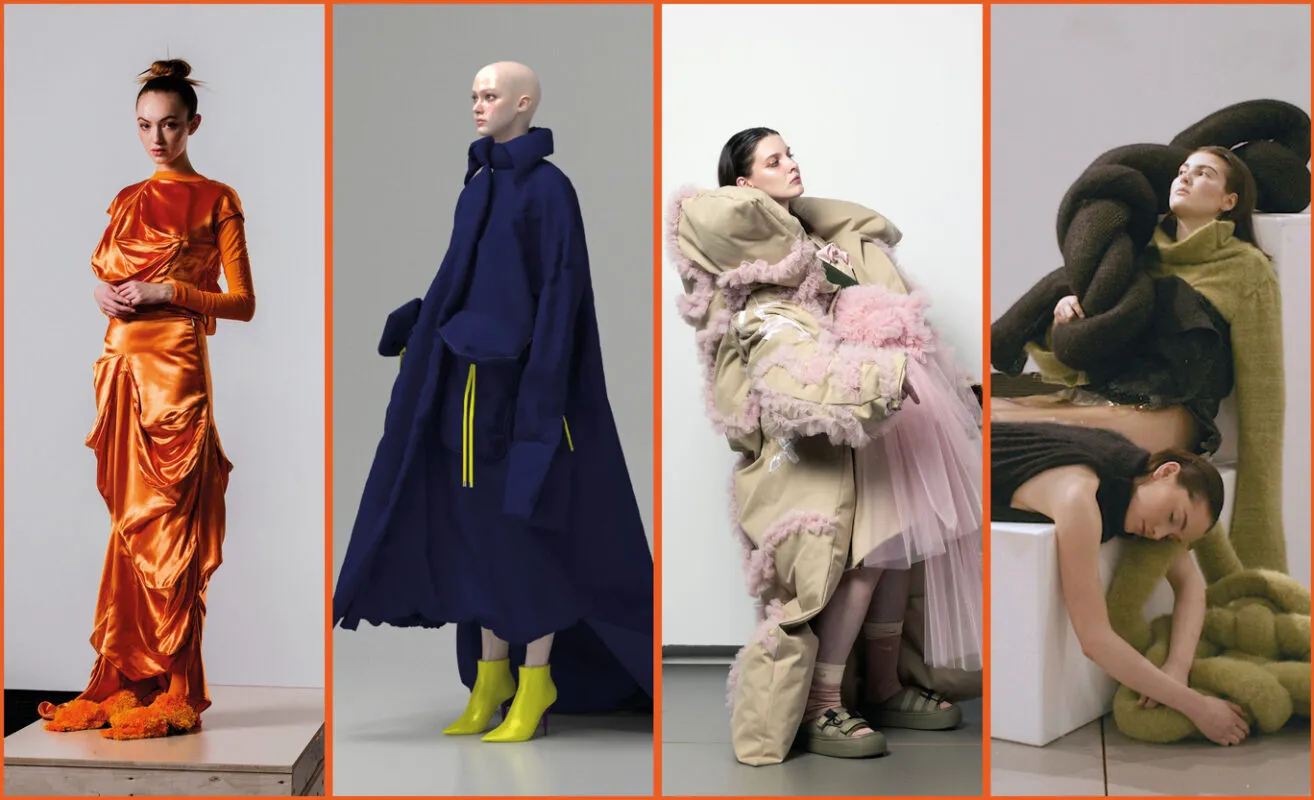The Third Year of the B.A. (Honours) Fashion Design programme focuses on developing the student’s understanding of their specific area of study while addressing their creative growth. This is achieved through the student undertaking assignments and projects which focus on expanding their design practice, improving their design communication and digital skills, and developing their abilities to translate 2D concepts into 3D forms.
Learning includes studio-based projects with tutorial guidance, fashion and fabrication technique workshops, skill-labs, digital workshops, lectures, live industry projects and competitions, formal critiques, visual research assignments, independent study, and team projects.
Placement, Practice & Exchange is a key module in the Second Semester of the student’s Third Year of study. The B.A. (Honours) Fashion Design programme has excellent links to both partner Universities around Europe that can facilitate an Erasmus Exchange and to the Fashion and Textiles Industry. The course a strong track record of students successfully securing and undertaking work placements both nationally and internationally. Students gain an enormous amount of transferable design and development experience during their placements that have benefited the students, the University, and the fashion companies alike. Recently, students have undertaken work placements in:
Ireland: Colin Horgan, McKernan Woolen Mills, Penneys/ Primark, Natalie B. Coleman, Úna Burke. London: Alexander McQueen, Craig Green, Sharon Wauchob, Charles Jeffrey LOVERBOY, Sinéad O’Dwyer, J.W. Anderson, Richard Malone, Conner Ives, Molly Goddard, Samuel Gui Yang, Richard Quinn. New York: Proenza Schouler, Diane Von Furstenberg, Alexander Wang, Anna Sui, Marchesa, Marc Jacobs, Voz Apparel. Paris: Chanel. Switzerland: Hugo Boss Knitwear. The Netherlands: Iris Van Herpen, Viktor & Rolf, Karl Lagerfeld. Belgium: Ann Demeulemeester, Haider Ackermann. Sweden: Acne Studios.
